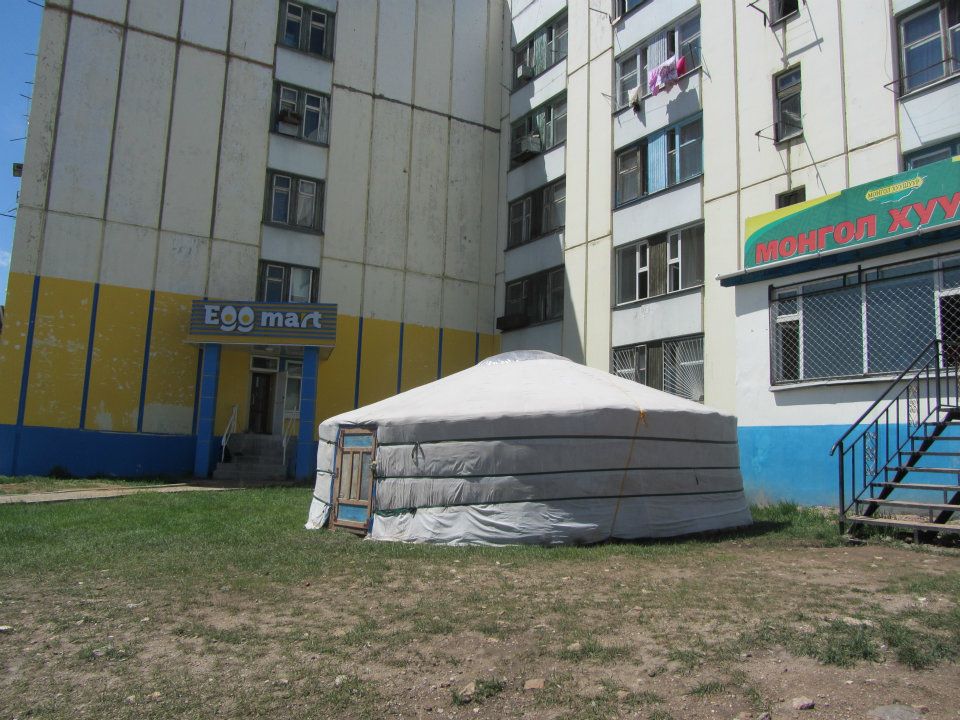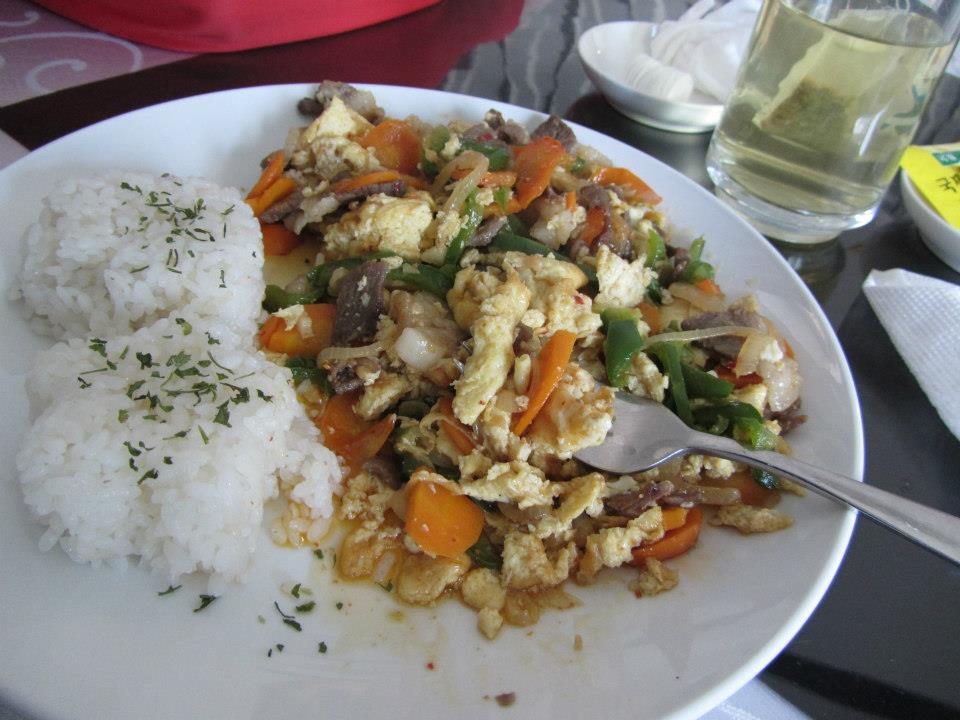By Marissa J. Smith
Like fences, chickens (and their eggs) are seemingly “unnomadic” products. Also like fences, eggs are hardly unavailable in Mongolia, at least in urbanized areas and provincial centers.

A food shop, Egg Mart, with airag ger and khushuur shop in Erdenet, 2012.

A main course dish with eggs (өндөгтэй хуурга) in Erdenet, 2012.
While the domestic chicken (тахиа) does feature in the Mongolian twelve animal cycle, it does not of course feature among the “five snouts” or customary domestic livestock animals (horse, cow/yak, sheep, goat, camel). The Tsarist explorer Przhevalsky even wrote in his 1876 book, Mongolia, the Tangut country, and the solitudes of northern Tibet, being a narrative of three years’ travel in eastern high Asia, that:
“Fowl or fish they [Mongols] consider unclean, and their dislike to them is so great that one of our guides nearly turned sick on seeing us eat boiled duck at Koko-nor” (p. 57).
Nonetheless, according to figures from 1990, “The total population of farm birds is 376,000, 73 percent of which are found on state farms and 18 per cent on co-operative farms; 9.6 per cent are raised on subsidiary farms and by individuals.” (Information Mongolia, pg. 196). This may refer to egg-layers, with egg consumption being well established in northern Mongolian population centers, at least, by the early 2000s. As indicated by the messaging on the egg carton pictured below, eggs are considered healthy and nutritious (“For a healthy family,” эрүүл гэр бүлийн төлөө).

Mongolian egg carton, as shared in Facebook group for “Expats in Mongolia” 
Comment about use and reuse of Mongolian egg cartons, as shared in Facebook group for “Expats in Mongolia” by a user with a Mongolian forename
As indicated by this comment, in Mongolia eggs can also be purchased by the unit. I have been provided in this case with a small plastic bag, as also can be the case with yogurt, when it is distributed for sale, for transport by the consumer from the point of sale.
